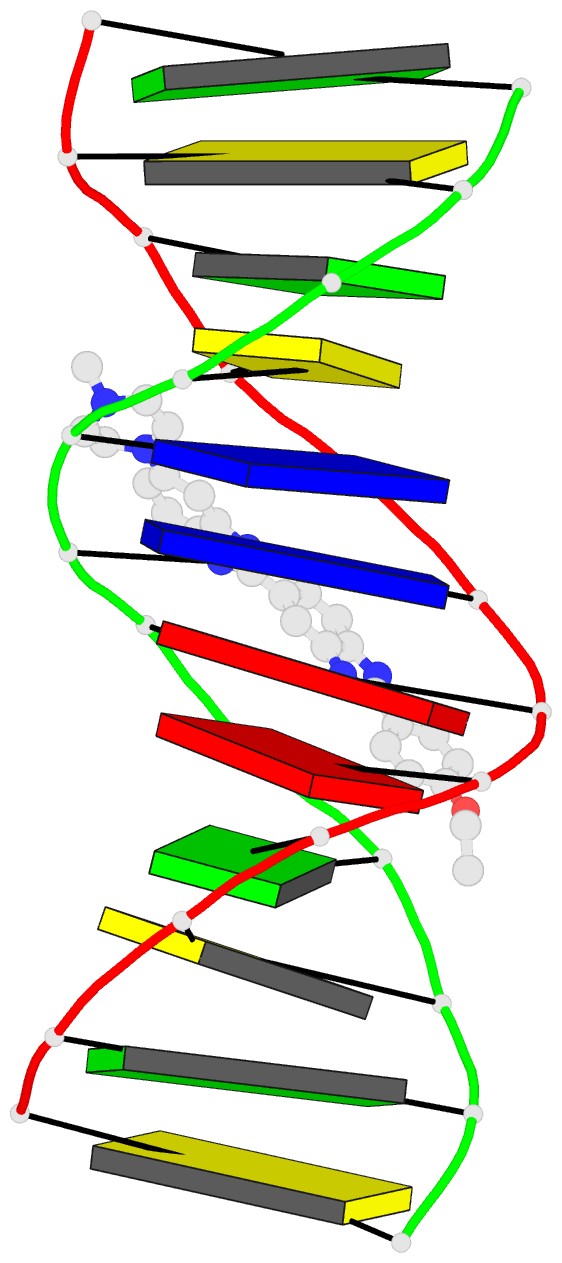Summary information and primary citation
- PDB-id
-
130d;
SNAP-derived features in text and
JSON formats
- Class
- DNA
- Method
- X-ray (2.5 Å)
- Summary
- Molecular structure of d(cgc[e6g]aattcgcg) complexed
with hoechst 33342
- Reference
-
Sriram M, van der Marel GA, Roelen HL, van Boom JH, Wang
AH (1992): "Conformation
of B-DNA containing O6-ethyl-G-C base pairs stabilized by
minor groove binding drugs: molecular structure of
d(CGC[e6G]AATTCGCG complexed with Hoechst 33258 or
Hoechst 33342." EMBO J.,
11, 225-232.
- Abstract
- O6-ethyl-G (e6G) is an important DNA lesion, caused by
the exposure of cells to alkylating agents such as
N-ethyl-N-nitrosourea. A strong correlation exists between
persistence of e6G lesion and subsequent carcinogenic
conversion. We have determined the three-dimensional
structure of a DNA molecule incorporating the e6G lesion by
X-ray crystallography. The DNA dodecamer
d(CGC[e6G]AATTCGCG), complexed to minor groove binding
drugs Hoechst 33258 or Hoechst 33342, has been crystallized
in the space group P212121, isomorphous to other related
dodecamer DNA crystals. In addition, the native dodecamer
d(CGCGAATTCGCG) was crystallized with Hoechst 33342. All
three new structures were solved by the molecular
replacement method and refined by the constrained least
squares procedure to R-factors of approximately 16% at
approximately 2.0 A resolution. In the structure of three
Hoechst drug-dodecamer complexes in addition to the one
published earlier [Teng et al. (1988) Nucleic Acids Res.,
16, 2671-2690], the Hoechst molecule lies squarely at the
central AATT site with the ends approaching the G4-C21 and
the G16-C9 base pairs, consistent with other spectroscopic
data, but not with another crystal structure reported
[Pjura et al. (1987) J. Mol. Biol., 197, 257-271]. The two
independent e6G-C base pairs in the DNA duplex adopt
different base pairing schemes. The e6G4-C21 base pair has
a configuration similar to a normal Watson-Crick base pair,
except with bifurcated hydrogen bonds between e6G4 and C21,
and the ethyl group is in the proximal orientation. In
contrast, the e6G16-C9 base pair adopts a wobble
configuration and the ethyl group is in the distal
orientation.(ABSTRACT TRUNCATED AT 250 WORDS)





